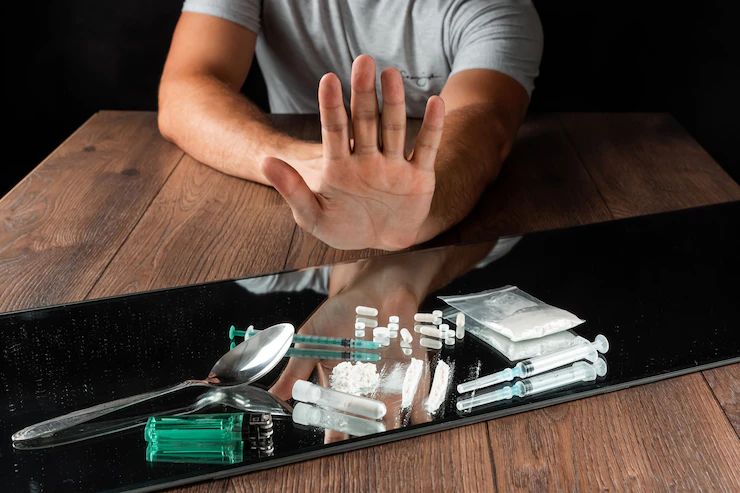Your Guide For Relapse Prevention And Recovery From Severe Addiction
Drug abuse can have long-lasting detrimental effects on health. Quitting drugs is not an easy feat, as it requires conviction, strong willpower, and determination to let go of old habits and adopt a better lifestyle.
Take one step at a time and learn to cope with relapse prevention skills. One small mistake can take you back to a life of misery, hopelessness, and despair.
Drug and substance abuse makes a person weak both physically and mentally. There is no hope to live and excel in life as one only thinks of resorting to temporary pleasure.
Society also views a drug addict as someone with a weak character. If you want to overcome drug addiction and live a meaningful life, it is important to be aware of a possible relapse and adopt strategies to recover from severe addiction.
There are different reasons why a relapse can occur:
- Drug addicts find drugs as a way to kill boredom. When they quit taking drugs, they feel bored and useless.
- People resort to substance abuse as a way to relieve stress and combat life problems
- An individual starts taking drugs due to pent up emotions or anger issues
- Sometimes drug addicts are unable to recover because of cravings and falling into old habits;
- Financial stability is also an important factor for successful recovery
Recovering from severe addiction is not possible without the support of professionals. Different treatment centers offer top-notch facilities to recover in the best possible way.
Top-rated treatment facilities like delphihealthgroup.com make the process easier and faster. Techniques adopted by professionals here will help you cope with the aftereffects of drug abuse.
Here are some ways to combat drug abuse:

1. Taking care of your ownself
Be aware of the possible changes your body and mind will go through. You can’t become active straight away.
Give yourself some space and start taking a balanced diet full of fresh fruits, vegetables, and nutrition. Flex your muscles and exercise regularly to keep yourself rejuvenated and revitalized. When you leave an old habit, it becomes difficult to live without it.
Having a large breakfast and breaking down your meals into smaller portions throughout the day will help you recover faster after working out. It will also allow you to have stable and deeper sleeping patterns, which will let you regain health and overcome drug addiction.
2. Indulge in meditation
Practice meditation to relax your nerves. Yoga Tai Chi is a helpful meditation technique that makes one self-aware. Individuals who use mindful meditation remain calm, relaxed, and more in tune with themselves.
Being aware of what happens after quitting drugs is a powerful technique that is used in mindful meditation. Know that you will feel cravings and withdrawal symptoms. Instead of fighting your cravings, learn to live with them.
Understand that you will have bouts of depression and hopelessness. It is natural to feel a dying urge to get back to drugs, but that doesn’t mean you should start taking them.
Accept yourself and spend more time in prayer and meditation.
3. Be aware of what triggers you
Every person is different. There are plenty of reasons why you started taking drugs in the first place. Identify those reasons and pinpoint the trigger areas.
One of the best relapse prevention skills is to avoid people and places that bring back bad memories.
Internal triggers could be stress, anxiety, hopelessness, or low self-esteem, while external trigger issues can be people, places, and events that remind you of something bad.
Make a list of internal and external triggers that might encourage you to start taking drugs again. Avoid going to such places or meeting people that will result in a possible relapse.
4. HALT
This technique makes you aware of your feelings and lets you address your emotional needs. HALT is a short form of Hunger, Anger, Lonely and Tired.
If you are experiencing any of these symptoms, you might want to go back to drugs. Satisfy hunger pangs, take out anger and negative emotions, meet friends and people and sleep well to avoid a relapse.
5. Breathe deeply

Deep breathing releases neurotransmitters that make you feel good about yourself. Deep breathing also fills up your lungs with oxygen, and by exhaling, you let go of the toxins.
Take four deep breaths from your nose and hold it in, then release it after four seconds. The amount of oxygen you hold inside your lungs provides oxygen to the vital organs and gives you a feeling of rejuvenation.
Deep breathing is the best coping strategy to combat drug addiction because you can do it anywhere, anytime, without notifying anybody about your actions. It calms your nerves and is a great stress reliever.
Final Thoughts
Drug addiction can destroy your life. Recovering from drug abuse can make your life better and more peaceful.
Adopt the strategies mentioned above to overcome severe addiction and prevent a relapse.
Read Also:
- What Is ADHD? Symptoms, Treatment, And Prevention
- Signs And Symptoms Of Substance Abuse
- How to Explain Your Addiction to Your Loved Ones



